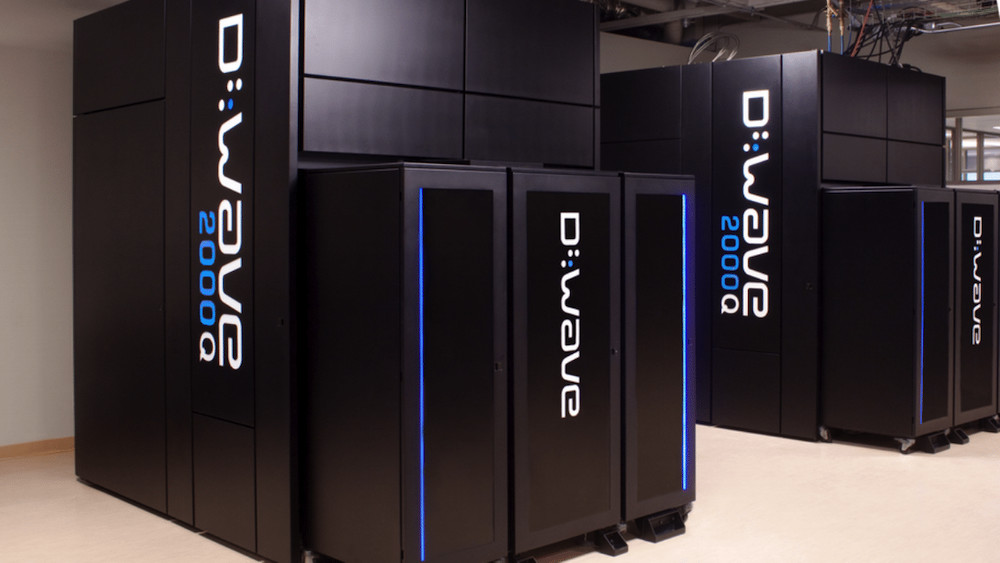 EMERGING TECH
EMERGING TECH
 EMERGING TECH
EMERGING TECH
 EMERGING TECH
EMERGING TECH
Quantum computing company D-Wave Systems Inc. today revealed that it has sold the first of its next-generation, 5,000-qubit machines to the Los Alamos National Laboratory.
The new machine is named “Advantage” because, D-Wave said, it gives organizations a significant edge over competitors that do not have access to a quantum computer.
For the uninitiated, quantum computing is a fundamentally different and vastly more powerful computer architecture that, although still nascent, has the potential to solve extremely complex problems that are impossible or would take years for today’s computers to tackle.
The main difference is that quantum processing can take place in multiple states simultaneously. Whereas traditional computers use binary digits or “bits” that can be represented as 1 or 0, quantum computing uses “qubits” that can be “superpositioned,” allowing them to be represented as 1s, 0s or both states at the same time.
In addition, qubits can use a method called superdense coding that allows them to hold two bits simultaneously. So two superpositioned bits held in one qubit means they can process four times the data of ordinary computers. Qubits also have the ability to correlate with each other so that each is aware of the state of all the others. That means quantum computers grow in power exponentially as qubits are added.
There are, however, different types of quantum computers. D-Wave’s rivals, which include IBM Corp., Google LLC and Rigetti Computing, are focused on building universal quantum computers that can tackle any kind of problem. But in D-Wave’s case, its machine relies on a method called “quantum annealing” that’s best suited to solving optimization problems such as logistics, where lots of potential solutions exist. It can’t, however, be used to crack modern forms of encryption.
Still, the Los Alamos National Laboratory seems to think D-Wave’s quantum annealing computers are useful enough for its own specific needs. The lab has already developed more than 60 applications for D-Wave’s previous 2000-qubit system and is ready to do even more with the more powerful Advantage machine.
“This is the third time we will have upgraded our D-Wave system,” LANL associate laboratory director for simulation and computation Irene Qualters said in a statement. “Each upgrade has enabled new research into developing quantum algorithms and new tools in support of Los Alamos’ national security mission. Quantum computing is a critical area of research for Los Alamos, and our researchers are excited about getting access to D-Wave’s Advantage quantum system.”
LANL’s new machine gives it access to a new quantum processor that not only has more qubits, but also “less noise.” The qubits themselves have also been interconnected in a smarter way that results in higher performance, D-Wave added.
“With the Advantage quantum system, we are building the first ever quantum computer designed to deliver business benefit,” said Alan Baratz, chief product officer at D-Wave. “Our investments across our quantum platform will together allow customers to solve even more complex problems at greater scale and bring emerging quantum and hybrid applications to life.”
The ability to solve complex problems is what counts most of all, since enterprises these days are more interested in the actual business use cases of quantum computing rather than the number of qubits, Constellation Research Inc. analyst Holger Mueller told SiliconANGLE.
“For executives this means it’s time to pay attention on how easy vendors are making it to build and operate next generation applications,” Mueller said. “This may well be closer around the corner than previously thought. It’s important to tune in now as the disruptive potential of quantum computing exceeds that of digital transformation. We also know the speed of this disruption will also be much faster.”
D-Wave said the Advantage system will be made available in mid-2020.
Support our mission to keep content open and free by engaging with theCUBE community. Join theCUBE’s Alumni Trust Network, where technology leaders connect, share intelligence and create opportunities.
Founded by tech visionaries John Furrier and Dave Vellante, SiliconANGLE Media has built a dynamic ecosystem of industry-leading digital media brands that reach 15+ million elite tech professionals. Our new proprietary theCUBE AI Video Cloud is breaking ground in audience interaction, leveraging theCUBEai.com neural network to help technology companies make data-driven decisions and stay at the forefront of industry conversations.